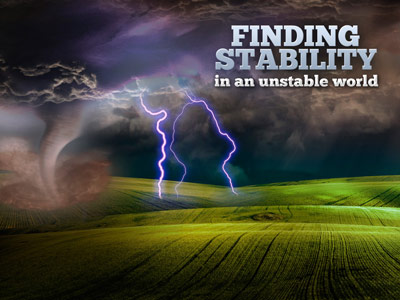-
Playing It Safe: Job's Friend Zophar Series
Contributed by Joseph Smith on Nov 28, 2017 (message contributor)
Summary: For Lent and Annunciation: Zophar’s counsel is to "play it safe" by sticking to ideas rather than engaging persons. He thinks that security is the goal. God in Christ takes the risk of loving us and living with us.
Every human heart is so made that it can be hurt. Of that I have no doubt. Every human heart is subject to hurt, to pain, to shock. Every one of us is subject to feelings that we do not enjoy -- disappointment, anger, despair, guilt, anxiety -- a whole range of painful feelings. And we either deal with those feelings or we run away from them. We either take hold of the reality of what we feel or we deny it, we repress it, we push it back, we try to get rid of it.
In short, when we feel something painful, either we face it head on and take some risks to work with it, or we play it safe. Playing it safe, I submit, is the favorite indoor sport of a whole lot of us. Playing it safe with our feelings and with others’ feelings, too, is the way we choose to handle the hurts of life.
Nothing challenges us quite like having to deal with someone else’s pain. If you and I have successfully played it safe and have avoided confronting the hurts and hostilities we have within ourselves, then when we come face to face with somebody else who hurts, we get scared. We find that pretty threatening. And we again try to play it safe.
Walk with me down one of these usually quiet neighborhood streets, and we find a child standing on the corner crying his eyes out. What will we do? How shall we respond?
Now that seems pretty safe, and the person doing the hurting is also pretty safe. So more than likely you or I would stop and put an arm around that child and ask what the problem is or find out where Mom is and see to it that the hurt is helped. That doesn’t threaten us much. We can play it safe and still heal a human hurt.
But now let’s walk out here to Piney Branch Road and stand on the corner, looking at the stream of traffic. Sooner or later, I can assure you, two drivers will try to defy the laws of physics. They will try to occupy the same space at the same time.
Well, now things are a little different. We saw it happen. We have observed with our own eyes who is at fault. And we know that we ought to run out there and find out if anyone is injured, and, beyond that, that we ought to offer our services as a witness. But what goes through our minds?
"I might have to go to court" "I might get caught up in an argument" "This is going to cost me a lot of time" "I’d have to take sides; I just don’t want to get involved"
It is getting a little harder, isn’t it, to help the hurting? We would really rather play it safe. We are not sure that getting too close to this problem is something we want to do. Several months ago, when my wife was involved in an accident on Piney Branch Road, we were very pleased when somebody came forward and said, "I saw the whole thing. It was not your fault. I’ll be glad to be a witness on your behalf." That was very reassuring. But guess what? A few days later the insurance adjuster did call that man, and he said … can you guess what he said? "I don’t want ... •… come on, you know the rest …”I don’t want to get involved."
It seems as though playing it safe is a very powerful force with us. We see that others hurt, and something inside insists that we respond, but then something else takes over and tells us to play it safe.
Now come on a step further with me. We’ve walked in the neighborhood streets, we’ve stood on the Piney Branch Road corner. Now come on out to Georgia Avenue, out to one of those blocks where there are rumors of drug sales, where the reputation is a little unseemly and the folks hanging around the liquor store entrance do not exactly look like deacons. And out there on the Avenue, suddenly there is a scuffle just a hundred yards ahead of us, and the blade of a knife is flashing in the sunlight, and somebody is down on the sidewalk, bleeding, and people are running in every direction. When you and I gather our wits, we realize that someone is badly hurt and that we are the only ones left around to do anything about it. What will we do? What are our thoughts this time?
"This is a mean street" "Those guys could come back; they might attack me" "If I handle this injured fellow, I might get slapped with a lawsuit" "Hey, what if he has AIDS?" And the tougher the situation, the more everything inside us conspires to play it safe, to stay removed, to let somebody else do it. Playing it safe, even when every human instinct says, "Let’s help". Playing it safe, even when every Christian teaching we’ve ever heard speaks of reaching out to others in need. Playing it safe, even though at the very heart and core of Christian life we are urged to take risks.

 Sermon Central
Sermon Central



